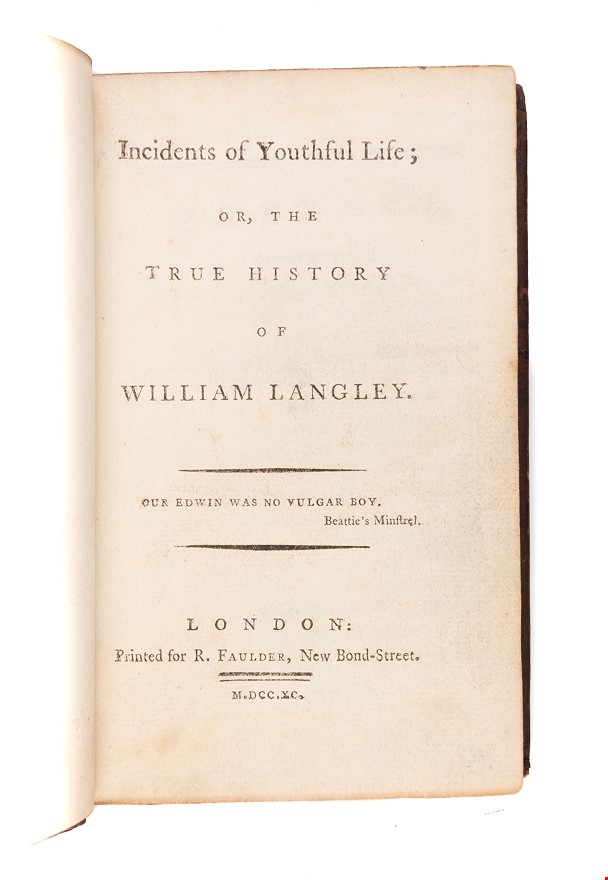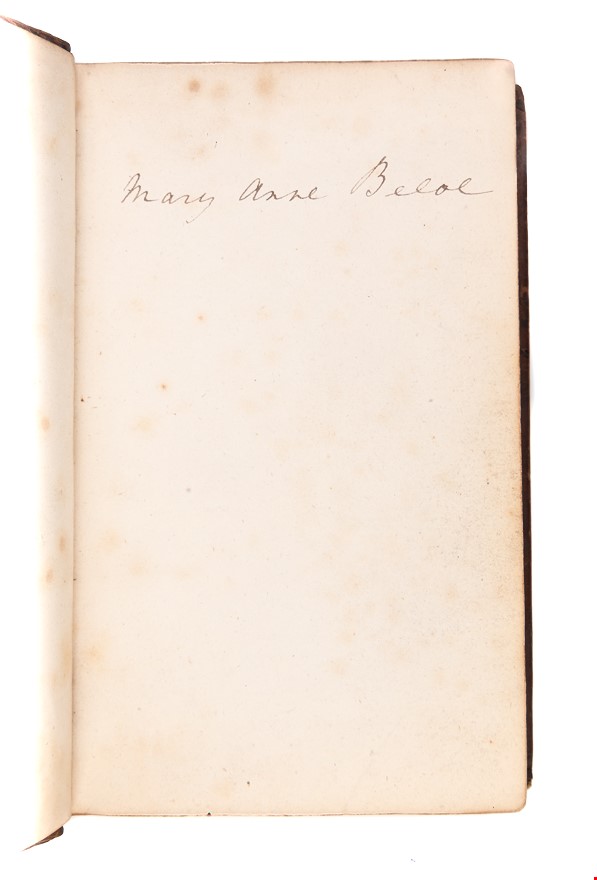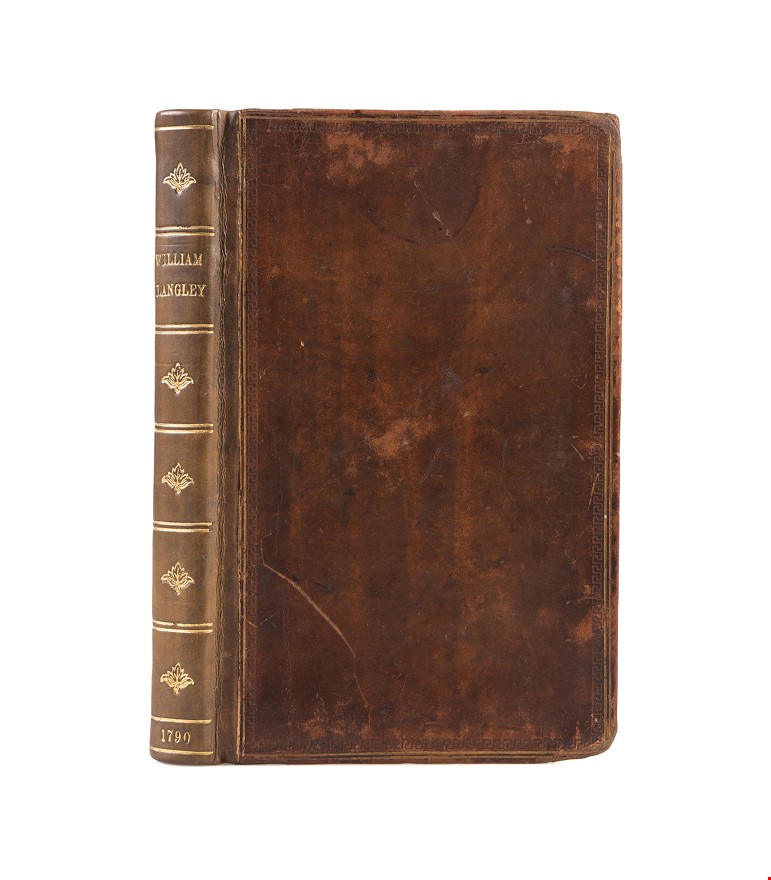Incidents of Youthful Life; or, the True History of William Langley.
BELOE William (1790)
£1250.00 [First Edition]
"A VERY PROPER PRESENT FOR A SCHOOLBOY"
First Edition. Small 8vo (146 x 90mm). vii, [1], 157, [1] pp. A little dusty in places, a number of ink trials and blots in places, a few leaves slightly chipped at the edges. Contemporary calf, covers ruled in gilt and with a blind Greek key border, marbled endleaves (rebacked with a new spine, spine lettered in gilt).
London: for R. Faulder, 1790
Rare. ESTC records British Library and Columbia University only. Re-printed in 1792 (BL, Toronto Public Library and Library Company of Philadelphia only) and 1793 (NYPL, Pierpont Morgan Library and UCLA (lacking title-page)).
"Few books composed or published for amusing and improving the growing faculties of children, are, in our opinion, better calculated for that purpose than the little performance before us": William Beloe's - almost certainly autobiographical - tale of a young man finding his way to Cambridge University via various adventures.
Our hero, William Langley, is born the son of a pious linen draper and through his father's encouragement attends Mr Baxley's school in Norwich where he learns to read and love books and before long he is spotted by a Mr Newton, a curate, who finds him a place at the local grammar school. Newton later arranged for Langley to attend a private school run by a Mr Snow in Richmond, Yorkshire. Langley continues to progress well under Snow - "he soon got before every boy in the school; he was indeed so fond of reading that he would often ask his master to lend him books...". In his spare time Langley enjoys fishing for trout in the streams around Richmond. Langley eventually returns to his parents in Norwich who are shocked to find that, "by residing so long in Yorkshire, he had got the Yorkshire dialect, or tone and manner of speaking" (p.117). His old teacher Mr Newton arranges for him to go to London and study with Rev Mr Smallwood at Westminster School and eventually it is decided that he should go up to Trinity College Cambridge.
William Beloe (1758-1817) was - like William Langley - born in Norwich and later educated at a school in Yorkshire. Beloe was also a student at Cambridge (although at Corpus rather than Trinity) where he was admitted size in 1774, matriculated 1776 and received his BA in 1779. Beloe held a number of clerical posts, wrote various books (including a translation of Herodotus) and established the British Critic. In 1803 Beloe was appointed under-librarian of the British Museum "'the great object of [his] ambition" but he was later dismissed when it was discovered that James Deighton, a printseller, had been stealing engravings (including examples by Rembrandt).
In a glowing review for the present work, The English Review wrote:
"This little elegant portrait is a very proper present for a schoolboy. It paints, in simple and lively colours, the pleasures, the pastimes, the avocations and duties of early life. And it captivates the young mind by exhibiting the charms of virtue by such gradual accessions of beauty and splendour as suit the openings of the understanding of the heart. Few books composed or published for amusing and improving the growing faculties of children, are, in our opinion, better calculated for that purpose than the little performance before us" (The English Review; or, an Abstract of English and Foreign Literature (1791) p.235).
Provenance: Mary Anne Beloe (nee Rix; d. after 1817), wife of the author, signature on the initial flyleaf. Beloe married Mary Anne, the daughter of William Rix of London in August 1780. This copy has a number of editorial marks in it which could perhaps suggest that the copy was used by William Beloe in preparation for one of the later printings of the story. Bought by Maggs in July 1988.
.
Stock Code: 54186






